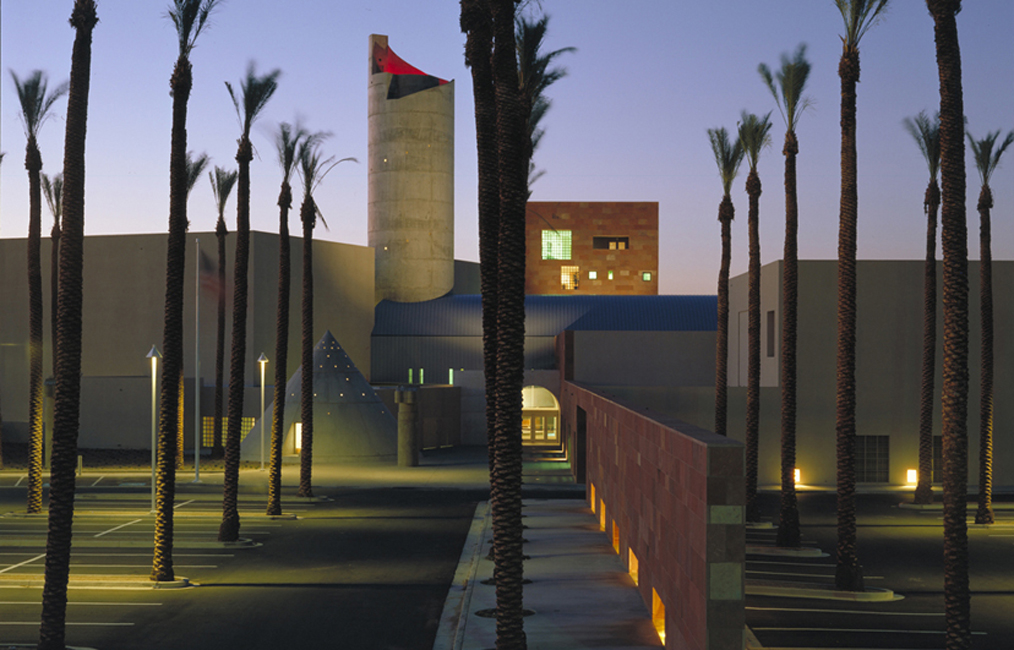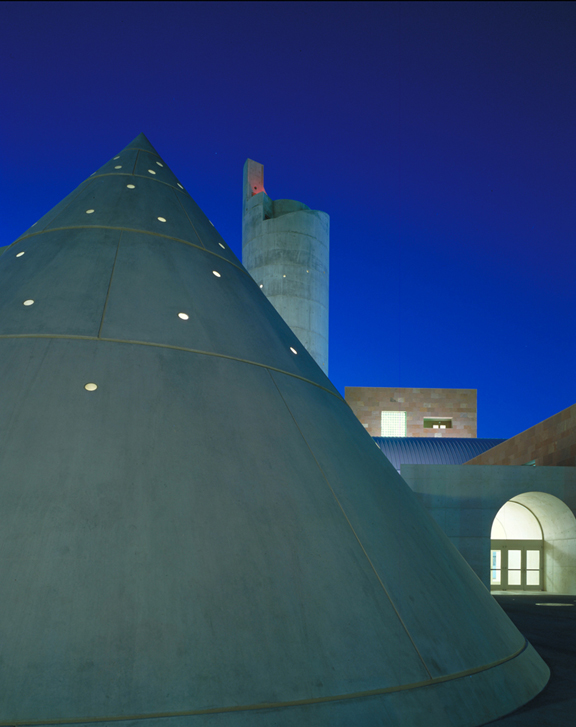
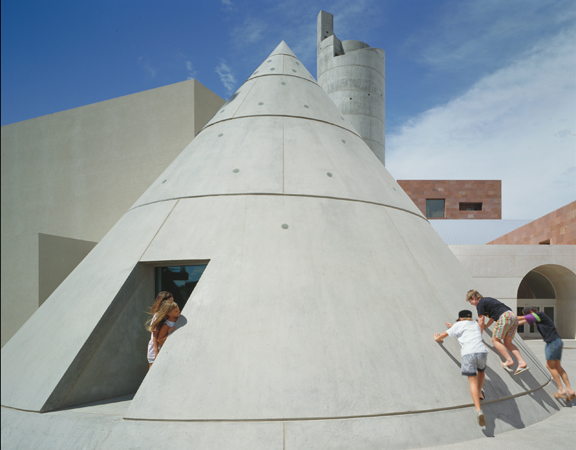
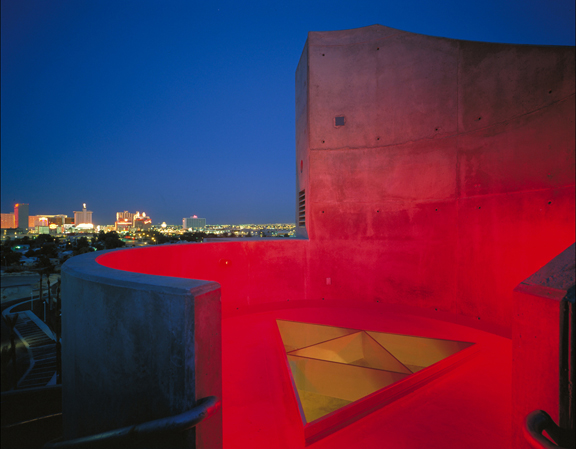
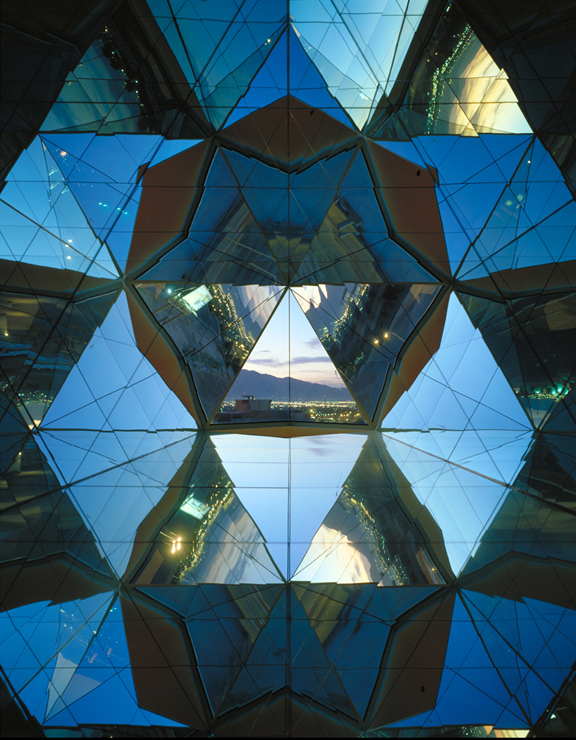
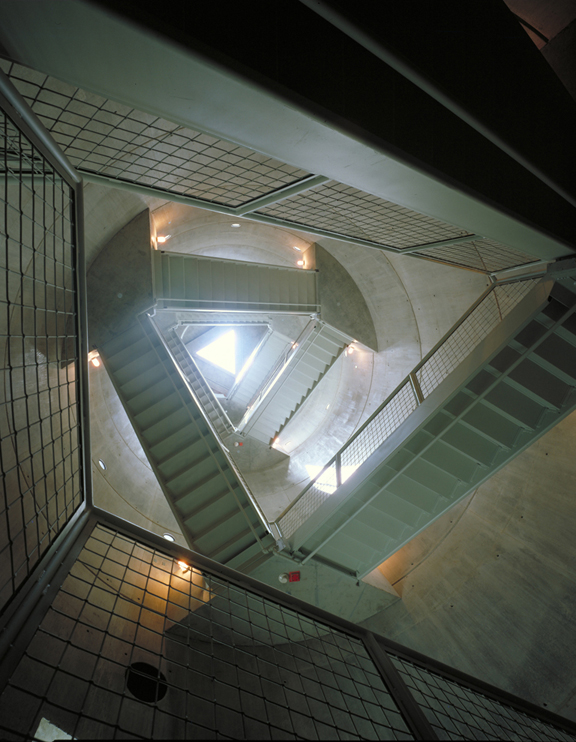
|
Las
Vegas Central Library and Children's Museum
Clark County Library District, Las Vegas, Nevada
1990
The fragility of both the desert and
the communities which colonize it is apparent when one views Las Vegas,
Nevada from the air. The Strip, Glitter Gulch, and the city form a thin,
permeable membrane which keeps the desert marginally at bay. Where the
desert relents, rectilinear grids of grass and asphalt parking prevail.
The Las Vegas Central Library and Children’s Museum are built at
the cultural heart of the city where temporary Paiute shelters and later
permanent Anglo-American settlements were sited. Visitors experience the
library and children’s museum as desert building and civic monument.
These overlays surface immediately in the Palm Court which signals shelter
and convenient automobile access. From this area one follows the water
course and sandstone wall to the entry.
Ceremonial elements of the complex impinge on this building forecourt:
the conical Birthday Room, the Science Tower, and the Meeting Room. Access
to these pieces is through the lobby fissure which delineates the programmatic
bifurcation of the building — museum to the west and library to
the east.
The Children’s Library physically bridges this architectural and
conceptual break. Its blue sky metal vault spans from the massive landform
of the two-level exhibition areas to the aggregated village form of the
library below. The sandstone wedge which is lodged at the north end of
the building houses the administrative areas of both the Museum and the
Library District. From the shared Boardroom at the top level, visitors
view a subtly intricate panorama. Fragments of mountain, desert, casinos,
neighborhoods, and technology come into focus from perimeter openings.
This visual confluence of nature, fantasy, urbanization, and science underscores
the complexities of the desert environment and the task of making architecture
responsive to its many faces.
|
